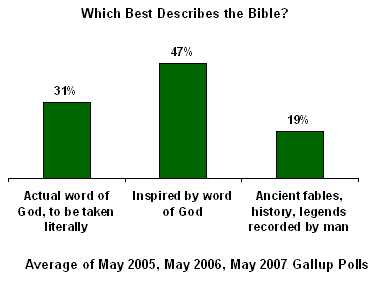Today Colson followed up yesterday’s Breakpoint commentary fiasco with:
Debt, Default, and Worldview
By: Chuck Colson|Published: July 28, 2011 7:30 AM
Kent comments some more:
Chuck was back today with more on this topic, and he didn’t completely rehabilitate himself. He starts out by saying:
The clock is ticking. The United States is on the verge of default. Congress and the president seem unable to come together and find an agreement avoiding an economic catastrophe.
The lie that the United States will default on its debt in the next few days is being circulated by those who don’t know better, or who do know better and just want to punch up the “news.” If the debt ceiling is not raised, it simply means that the government will have to live on its income. It has quite a lot of income – plenty to pay the interest on the debt, and several other things. But not everything. So failing to raise the debt ceiling will not cause a default. It would cause an out-of-control government to have to decide which of the many things it now pays for are most important. That’s not default – default is failing to pay the interest on or redeem government debt obligations. Living within your means is fiscal sanity and responsibility. Colson should know all that, but if he does, he doesn’t acknowledge it.
Then Colson goes on to say:
How in the world did we get into this fix? Well, it didn’t happen overnight. It’s been coming for a generation. For years, fiscal conservatives have warned about the dangers of out-of-control borrowing and spending, but current and previous presidents and congresses have ignored them, rolling up a massive national debt.
What’s that, Chuck? Yesterday those fiscal conservatives were lumped in with “ideologues” who refused to “compromise” and “solve” this problem. Today, they seem to be “voices crying in the wilderness” calling on presidents and congresses to repent. What happened since yesterday, Chuck?
In any case, Colson is now ready to diagnose the problem:
The bigger question is why did the American people stand for this? The answer is painfully clear. Because the people themselves were busy borrowing and spending like fiends.
Now Chuck is on to something. But there is a bit of the “chicken or the egg” matter hidden here. Did American’s make their government in their own “borrow and spend” image, or . . . did activists shape government into a borrow and spend mode which in turn influenced Americans?
Colson’s thought is that:
This is what happens when a false worldview comes home to roost. Remember that it was in the 1960s that existentialism and relativism took over college campuses. If there truly were no God and life were devoid of meaning, well, live it up while you can. Throw off the burden of moral restraints, of civic duty and responsibility.
Chuck comes close, but he never really grabs the gold ring. Existentialism and relativism did take over college campuses in the 1960s. And who sponsors and controls most of those colleges and universities? Governments. At those colleges and universities are departments of education, though which these worldviews were and are actively propagated though government controlled schools.
Perhaps everyday people changed in regard to the ethics of spending and borrowing because, through its various arms and institutions, those who ensconced themselves in positions of power and influence in government have pushed for those changed attitudes.
Colson says “The greatest generation scrimped and saved; their kids, the boomers, went on a big shopping binge.”
Let’s think back to what happened with “the greatest generation.” Their parents mostly idolized FDR, the president who did his level best to kick tax, spend, and borrow big government into high gear. The “greatest” generation elected people like LBJ and Richard Nixon, who kept the legacy of FDR growing.
And the baby boomers watched what their grandparents and parents had put into place in government, and decided to imitate the monster that their forebears had created. The greatest generation scrimped and saved, but they never insisted that their governments do the same. When they turned the education of their children over to those same governments, what did they expect?
Yes, Mr. Colson, it is a matter of worldview, but probably not in quite the way you think.
